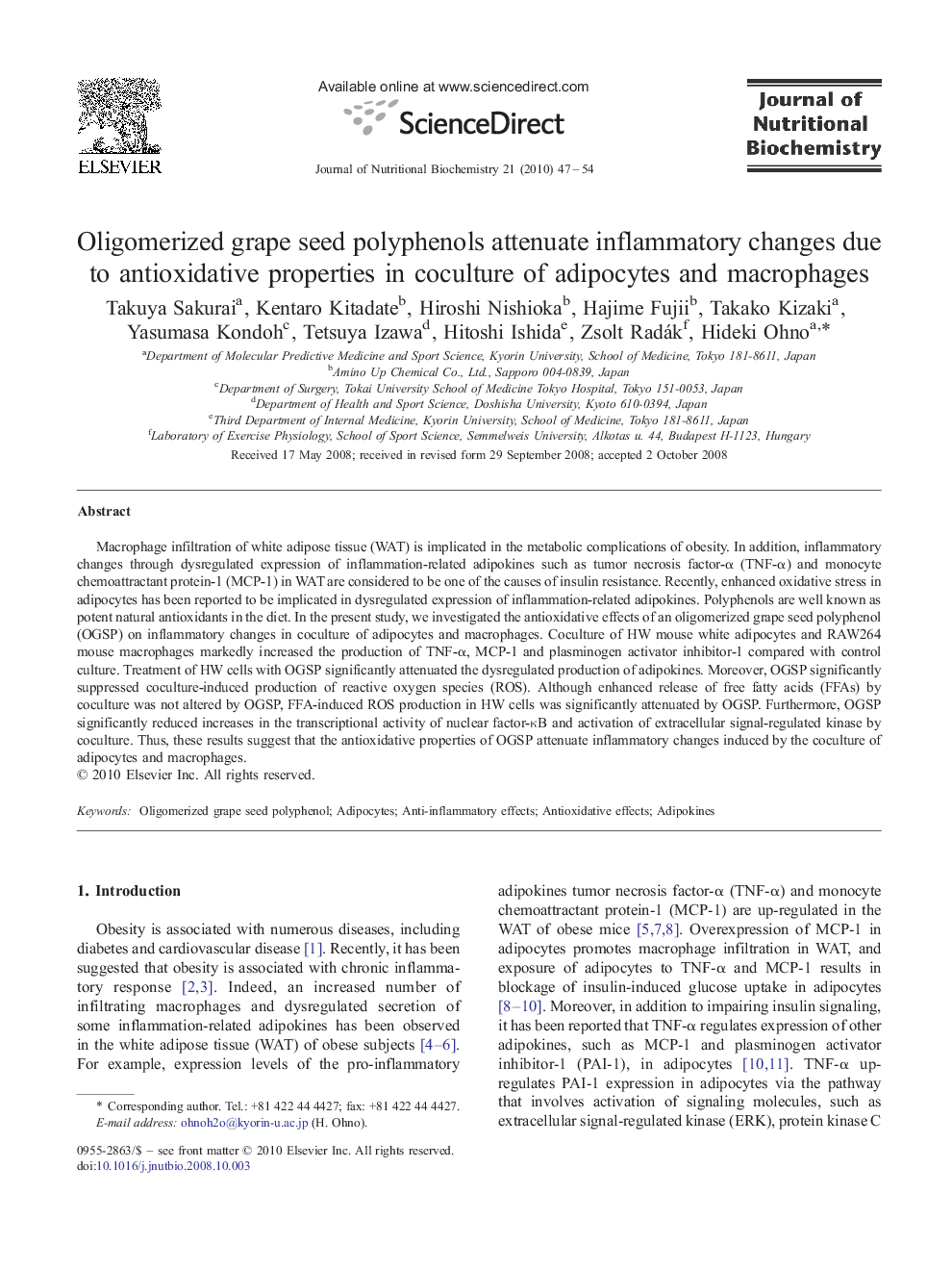| Article ID | Journal | Published Year | Pages | File Type |
|---|---|---|---|---|
| 1990308 | The Journal of Nutritional Biochemistry | 2010 | 8 Pages |
Macrophage infiltration of white adipose tissue (WAT) is implicated in the metabolic complications of obesity. In addition, inflammatory changes through dysregulated expression of inflammation-related adipokines such as tumor necrosis factor-α (TNF-α) and monocyte chemoattractant protein-1 (MCP-1) in WAT are considered to be one of the causes of insulin resistance. Recently, enhanced oxidative stress in adipocytes has been reported to be implicated in dysregulated expression of inflammation-related adipokines. Polyphenols are well known as potent natural antioxidants in the diet. In the present study, we investigated the antioxidative effects of an oligomerized grape seed polyphenol (OGSP) on inflammatory changes in coculture of adipocytes and macrophages. Coculture of HW mouse white adipocytes and RAW264 mouse macrophages markedly increased the production of TNF-α, MCP-1 and plasminogen activator inhibitor-1 compared with control culture. Treatment of HW cells with OGSP significantly attenuated the dysregulated production of adipokines. Moreover, OGSP significantly suppressed coculture-induced production of reactive oxygen species (ROS). Although enhanced release of free fatty acids (FFAs) by coculture was not altered by OGSP, FFA-induced ROS production in HW cells was significantly attenuated by OGSP. Furthermore, OGSP significantly reduced increases in the transcriptional activity of nuclear factor-κB and activation of extracellular signal-regulated kinase by coculture. Thus, these results suggest that the antioxidative properties of OGSP attenuate inflammatory changes induced by the coculture of adipocytes and macrophages.
